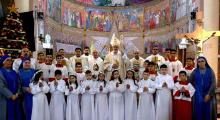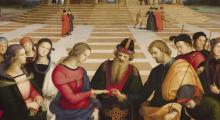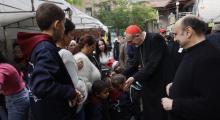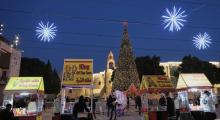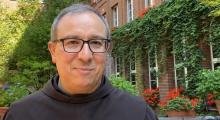Issued by the Catholic Center for Studies and Media - Jordan. Editor-in-chief Fr. Rif'at Bader - موقع أبونا abouna.org
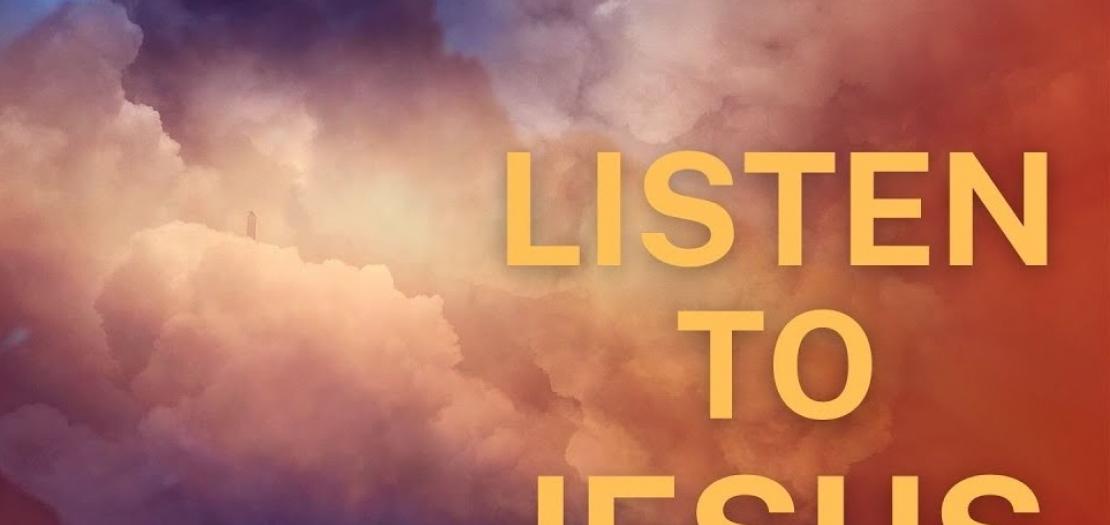
Following is the text of the meditation by Latin Patriarch of Jerusalem His Beatitude Pierbattista Pizzaballa for the 24th Sunday of ordinary time, Year C, September 11, 2022:
We can read today’s Gospel passage (Luke 15:1-32) in the light of the first verse: “Tax collectors and sinners were all drawing near to listen to Jesus.”
Thus, the passage opens with that picture. In it, we see that wherever Jesus is, there are tax collectors and sinners also, and they draw near to listen to Him.
Within that verse, let’s reflect on an adjective, in reference just to this category of persons whom the evangelist calls “tax collectors and sinners,” saying that all of them draw near to Jesus: “everyone.”
We could say that just this category, all, is what offends the second category of persons, Pharisees and Scribes, present at the scene. What offends them is precisely this, that Jesus also welcomes sinners, that is, Jesus welcomes “all.”
The three parables that Jesus recounts are played out, among others, on adjectives of quantity, of number.
In the first, we find a man who has one hundred sheep and loses one of them. At that moment, he leaves the ninety-nine to search for the lost one. He finds it, brings it back home, and reunites it with the others. It appears he does not have peace until he has all together again.
The second speaks of a woman who has ten coins, and loses one of them. She also goes about seeking it and doesn’t have peace until she has all of them.
In the third, there is a father. He has two sons, one of them goes far away. Having engaged in dissolute living, he returns home. At that point, it’s the other son that wants to leave, that doesn’t want to stay at home with the newly-returned brother. And the father of the two doesn’t find peace until both sons are with him once again.
With this key to understanding, it becomes clear to us that the problem is precisely here, in this all.
On the one hand, there is God, Who has at heart this desire of salvation for all.
We’ve heard it resound from the first pages of the Gospel of Luke when Jesus is presented in the Temple by His parents. A few days after his birth, an elder, full of the Holy Spirit, sees Him and recognizes in Him the gift that God gave to all humanity for the salvation of all nations. (Luke 2:31)
On the other hand, there is the man, divided between apparently two opposite tendencies. There is the man who is lost, like the younger son. And there is the man who is offended, who refuses to consider himself as one who is lost. Such are those who think they merit salvation, like the Pharisees we find in verse one of today’s Gospel.
Both make a mistake, an obvious error, an exchange of perspective.
The first ones think they no longer have the right to return home; the second think they alone have the right. Both are mistaken because none of them have the right, but this being at home is grace, and it’s life for all.
This desire for salvation by God cannot, therefore, be achieved otherwise than within a way where a person comes back to live in a brotherhood that excludes no one; a way where a person renounces defining who has the right to be saved and who does not.
Jesus, for that reason, eliminates each category. For Him, there aren’t Pharisees, tax collectors, sinners. All are equally sons, lost and found, called to be brothers, to form, together, this new family where there is room for all.
Jesus, on His journey to Jerusalem, takes another step and again illuminates the meaning of His way. In Jerusalem, He will give His life for all so that humanity, dispersed and divided, may once again be reunited into one family, without divisions, classifications, and distinctions.
Accepting this scandalous novelty is the narrow way through which to pass to enter home. We saw in previous Sundays the one who remains outside is not the one who made a mistake, but the one who thinks he has the advantage over others, of deserving something more. He is the one who is jealous of the brother whom the father has, freely and joyfully, welcomed back home.
+Pierbattista


